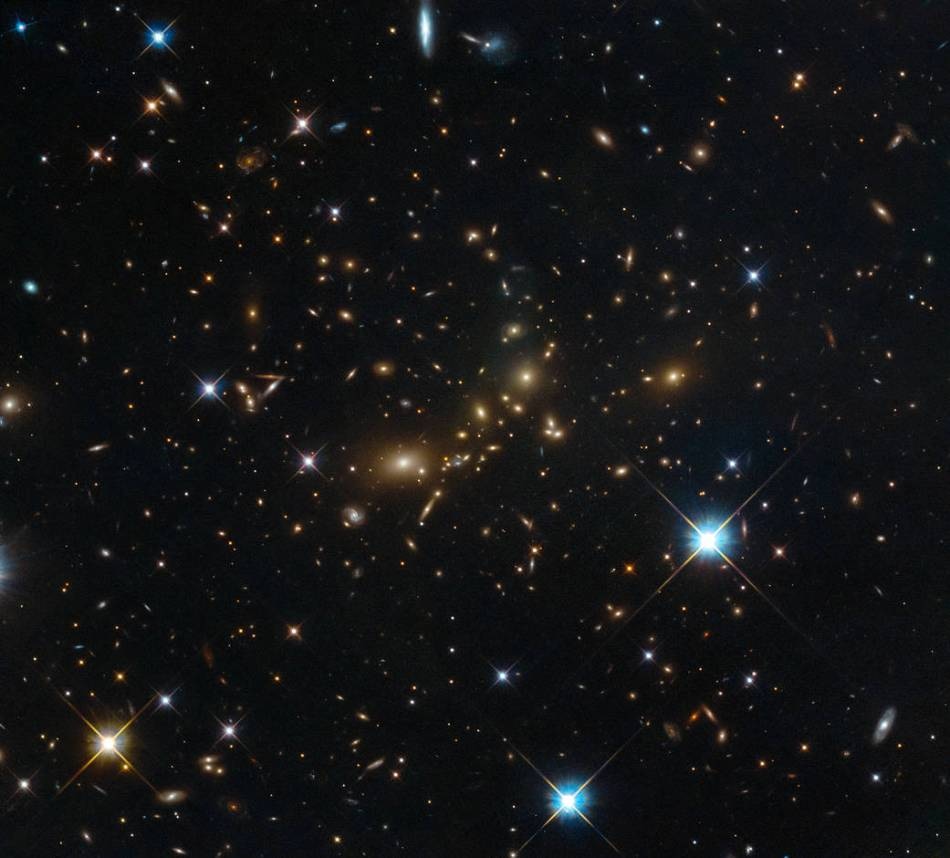Apr 17 2018
Seen in this NASA/ESA Hubble Space Telescope image is a colossal galaxy cluster, brilliantly luminous in the darkness. In spite of its beauty, this cluster is given a clearly prosaic name - PLCK G308.3-20.2.
 This image was taken by Hubble’s Advanced Camera for Surveys and Wide Field Camera 3 as part of an observing program called RELICS (Reionization Lensing Cluster Survey). RELICS imaged 41 massive galaxy clusters with the aim of finding the brightest distant galaxies for the forthcoming James Webb Space Telescope to study. (Image credit: ESA/Hubble and NASA, RELICS)
This image was taken by Hubble’s Advanced Camera for Surveys and Wide Field Camera 3 as part of an observing program called RELICS (Reionization Lensing Cluster Survey). RELICS imaged 41 massive galaxy clusters with the aim of finding the brightest distant galaxies for the forthcoming James Webb Space Telescope to study. (Image credit: ESA/Hubble and NASA, RELICS)
The galaxy clusters, which consist of thousands of galaxies, are bound by the force of gravity. Until the discovery of superclusters in the 1980s, they were considered to be the biggest structures in the universe. Generally, these gigantic formations comprise of dozens of galaxy clusters and groups and span across hundreds of millions of light-years.
Despite this, clusters have one thing to hold on to—as superclusters are not bound by gravity, galaxy clusters are still regarded as the largest structures in the universe held together by gravity.
The matter that permeates the space between the constituent galaxies, the intracluster medium (ICM), is one of the fascinating attributes of galaxy clusters. The formation of smaller structures inside the cluster leads to considerable increase in temperatures in these spaces. Consequently, the ICM is composed of plasma or ordinary matter in a superheated state.
The majority of luminous matter in the cluster exists in the ICM, which is extremely luminous in X-rays. However, non-luminous dark matter accounts for most of the mass in a galaxy cluster. In contrast to plasma, dark matter is not composed of ordinary matter such as electrons, neutrons, and protons. It is a theoretical substance considered to make up 80% of the mass of the universe. However, it has never been observed directly.